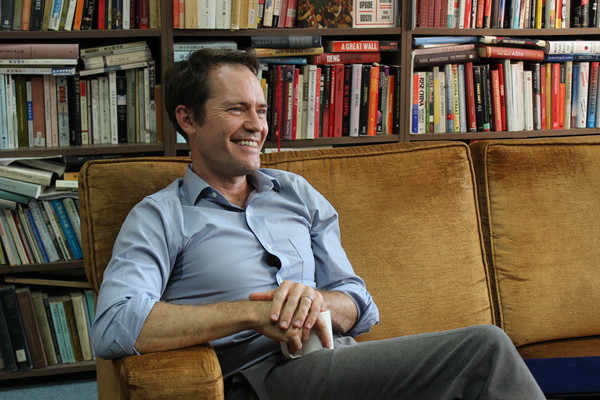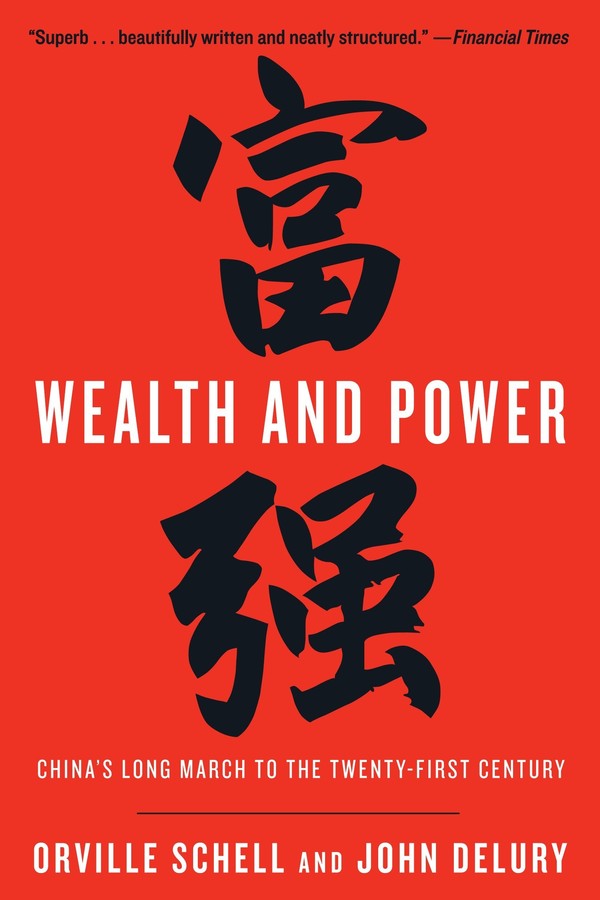From Yale to Yonsei, the future of East Asian affairs

A PROFESSOR of Chinese Studies at Yonsei University Graduate School of International Studies (GSIS) and Chair of the International Studies (IS) major at Underwood International College (UIC), Professor John Delury is a renowned scholar for East Asian affairs. He is a member of the Council of Foreign Relations and National Committee on North Korea, and associate managing editor for Global Asia, adjunct fellow of CSIS. He has visited North Korea four times and contributed op-eds to The New York Times and Washington Post. The Yonsei Annals sat down with Professor Delury to talk about his life, his academic work, and the future of international affairs.
Annals: Could you explain IS for readers who want to learn more about your field of study?
John Delury: My own definition of IS is deceptively simple: it's the academic study of the world’s problems and practical search for solutions. In other words, IS has an academic side of trying to understand global problems, while simultaneously asking, “So what will we do about those problems?” Another distinctive feature of IS is that it is highly interdisciplinary, in that IS itself is not really an academic discipline. It borrows from other disciplines such as economics, political science, history, ecology, and, recently, epidemiology and global public health, making it extremely broad in a way.
Annals: What made you interested in the field of foreign affairs?
Delury: I grew up in suburban California, and I picked up an interest in the world from my parents. I remember getting up early and reading the newspaper before my dad got it because I knew he would talk about things from the paper on the car ride to school. From a very young age, I developed habits of trying to keep up with the world and was fortunate that my family traveled a lot, even to remote places like Fiji and the Solomon Islands. It was just mind-blowing for a kid from suburban Sacramento to travel to Fiji for Christmas and then come home; I think the experience of traveling had a profound influence on me and gave me a sense of curiosity about the world, foreign affairs, and history. By the time I got to college, I was very interested in the wider world.
Annals: Why do you think it is important to know about modern Chinese and Korean peninsula affairs?
Delury: These days, the importance of knowing about Chinese affairs is almost self-evident because China is so powerful economically, militarily, and diplomatically. Things were different when I first started gaining an interest in China though; I went to Beijing after my freshman year of college and spent the summer interning for a non-governmental organization in the early nineties. At that point, China’s prominence was not self-evident to Americans, and I remember the reaction of my friends who acted like I was going to another planet when I told them I’d be spending time in China. However, by the late nineties, things really changed and people could see the strong future of the Chinese economy. While my interest in China began out of curiosity and attraction to the country’s culture and philosophy, it’s fascinating to see such significant shifts taking place in my own lifetime.
As for the Korean peninsula, there has been a lot of growing interest in South Korea for cultural reasons, and we benefit a lot from that South Korean soft power. I see those benefits in great ways as a teacher because the international students we’re getting are phenomenal. Oftentimes, they’ve come to study in South Korea after watching Korean TV shows and getting into K-POP.
North Korea is completely different, in that it attracts a very specific kind of fascination. Some of that fascination comes from fear; a fear of their nuclear weapons and fascination that grows from that fear. [North Korea is] almost like how China was when I started; very difficult to both visit and understand. I think it’s the mysterious nature of North Korea that draws people towards understanding it better.
Annals: You were originally trained in Chinese History at Yale. How did your transition from Chinese History to U.S.-China relations, and then to Korean Peninsula-related issues occur?
Delury: At Yale, I studied Sinology very intensively with a focus on history. I've always had a strong interest in Chinese philosophy, art, and contemporary Chinese society and politics, but honestly, I had little understanding or interest in Korea. Then, I happened to meet my now wife; we met in China and then I visited her family [in Korea], so my personal connection to South Korea started through her and her family.
Regarding my connection with North Korea, in August 2008, I had started a new job and was working in New York. I was working with my boss, Orville Schell, with whom I ended up writing a book. On my first day at the job, he was traveling so he asked me to sit in for him and moderate a book talk. The book, Meltdown: The Inside Story of the North Korean Nuclear Crisis, was about U.S. policy towards North Korea and focused on the George Bush Administration. I went a bit nuts reading this book and suddenly threw myself into North Korean affairs, which had not been on my radar at all. And so, very abruptly and suddenly, I gained an interest and just haven’t stopped since. So many aspects of North Korea interest me; I started with U.S. policy, but eventually got interested in North Korea-China relations, the similarities and differences between the Communist system in North Korea and that of China, and North Korea-South Korea relations now that I live here in South Korea.
Annals: How has your experience teaching at Yonsei for the past 11 years been?
Delury: I’ve had rather brief teaching experiences at all the other universities I’ve taught at preceding Yonsei—I spent a year at Brown, taught at Columbia just for one semester, and taught a bit at Yale, but I’ve spent over ten years here at Yonsei. I have so much more experience here, and this school is my home. It's just a joy to teach here, and part of it is because of the mixture of students I get; I teach at both UIC and GSIS, so it's really stimulating to teach both undergraduate and masters students coming from different backgrounds, different motivations, and different phases of their lives. I believe my experience is diversified when I have older students who are more practical, but then I also have my UIC students where I can be totally impractical. What’s also entertaining is the mixture of Korean students who spent all of high school in the great educational system of Korea, Korean students who went to high school abroad and bringing their experiences in, and then international students from almost all over the world. I could go on and on, and I'm not saying this because maybe you want to hear it, but I'm genuinely really happy teaching at Yonsei as an educator.
Annals: Finally, what advice would you offer to Yonsei students interested in IS?
Delury: My biggest piece of advice would be to get out there into the world, but of course we can’t do that at the moment because we’re in a pandemic. I think this means that students must find a different way to learn in this very unique situation. I think so especially because our faculty and students are generally very global people; my colleagues and I would be traveling constantly before COVID and we also had a plethora of international students coming from abroad. That’s suddenly put on pause and there's something you need to learn from this moment—Tibetan Buddhists call it a Bardo, an in-between space, like a state of consciousness in between life and death where you're not really alive but also not dead. I think about how the pandemic has induced this kind of “global Bardo.” From what I've read in Tibetan Buddhism, there's a lot to learn from a Bardo as you gain a new understanding of the normal aspects of life and what life means. I believe we are in a unique window of opportunity to learn because this situation is so unusual. The key is to pay attention and see if we can get a new kind of understanding and insight by recognizing this moment.


